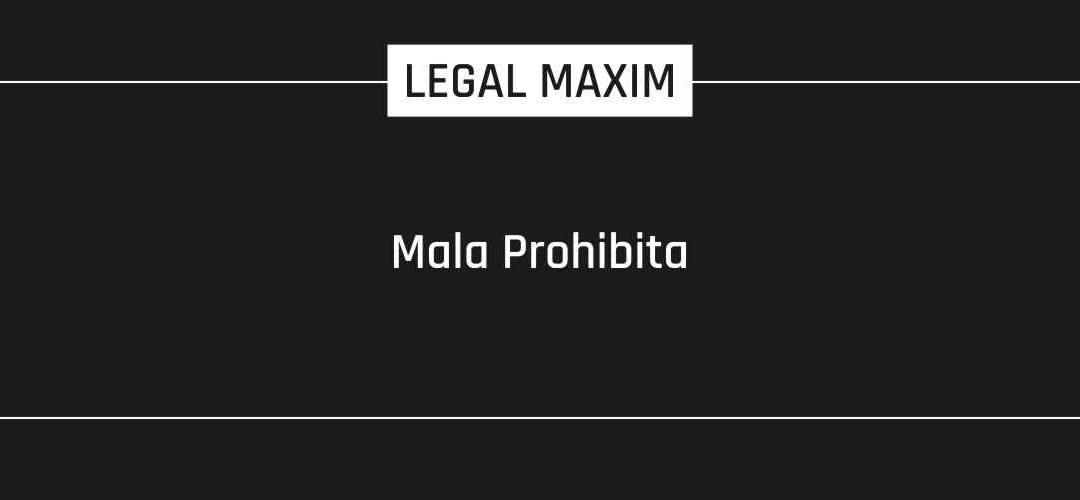Literal Meaning
Wrongs prohibited
Origin
Latin
Explanation
The Latin maxim refers to those things which are prohibited by law, and therefore unlawful. It is used in modern times and refers to actions that are wrong simply because laws have been passed prohibiting them. Crimes are divided into two categories:
- Mala in se – wrong in themselves
- Mala prohibita – wrong merely because they are punished by statute
An offense is an instance of malum prohibita when the conduct it prescribes is not wrongful prior to or independent of law, while a malum in se offense is an act that is wrongful prior to and independent of its legal prohibition. In general, acts mala prohibita are contrasted by acts that are wrong or evil in and of themselves. These evil acts are considered mala in se, which translates as “wrong in itself.”
Mala in se acts include things that humanity considers being amoral and reprehensible, such as murder, assault, kidnapping, rape, stealing, and cruelty. These are things that are wrong by their very nature, and are looked upon as the more unpardonable offenses, often causing public outrage.
On the other hand, acts mala prohibita are not immoral or unconscionable by their nature but are banned or regulated by law for the good of the community. There are certain things that need to happen in order for a community to operate smoothly and peacefully. In criminal law, the term mala prohibita applies in instances where something is made criminal by a criminal statute. Mala prohibita crimes do not usually require intent and do not usually carry powerful moral stigmas along with them.
Illustration
Driving while intoxicated on a public road makes it clear that inebriated drivers violate the rights of others by exposing them to unacceptable risks of accidents. Such crime which is prohibited by law is called mala prohibita.
Case Laws
In Tamizhazhagan And Anr. vs The Revenue Divisional Officer, the Madras High Court observed that ‘mala in se, is an offense against, nature or contrary to the moral sense of the community, and mala prohibita, is an offense against laws which enjoin positive duties and forbid things which are not mala in se, to which is annexed a penalty for non-compliance.’
In Naraynamma And Anr Etc Etc vs Govindappa And Ors., the Supreme Court while citing the Story’s Equity Jurisprudence by Randall, stated that “Where parties are concerned in illegal agreements or other transactions, whether they are mala prohibita or mala in se, courts of equity following the rule of law as to participators in a common crime will not interpose to grant any relief, acting upon the known maxim in pari delicto potior est conditio defendentis et possidentis. The old cases often gave relief, both at law and in equity, where the party would otherwise derive advantage from his inequity. But the modern doctrine has adopted a more severely just and probably politic and moral rule, which is, to leave the parties where it finds them giving no relief and no countenance to claims of this sort.”
In Sunil Kumar Ghosh vs the State of West Bengal And Ors., the Calcutta High Court stated that “The old distinction between mala prohibita and mala in se has broken down because many acts which have been made punishable as an offense by statutes do not involve any moral turpitude: “In particular, nothing in the moral character of an act or omission can distinguish it from a civil wrong or make it a criminal offense. There are, for example, many breaches of statutory regulations and bye-laws which, because they are punishable in criminal proceedings, must be classed as criminal offenses though they do not involve the slightest moral blame, as, for example, ‘the failure to have a proper light on a bicycle.”
